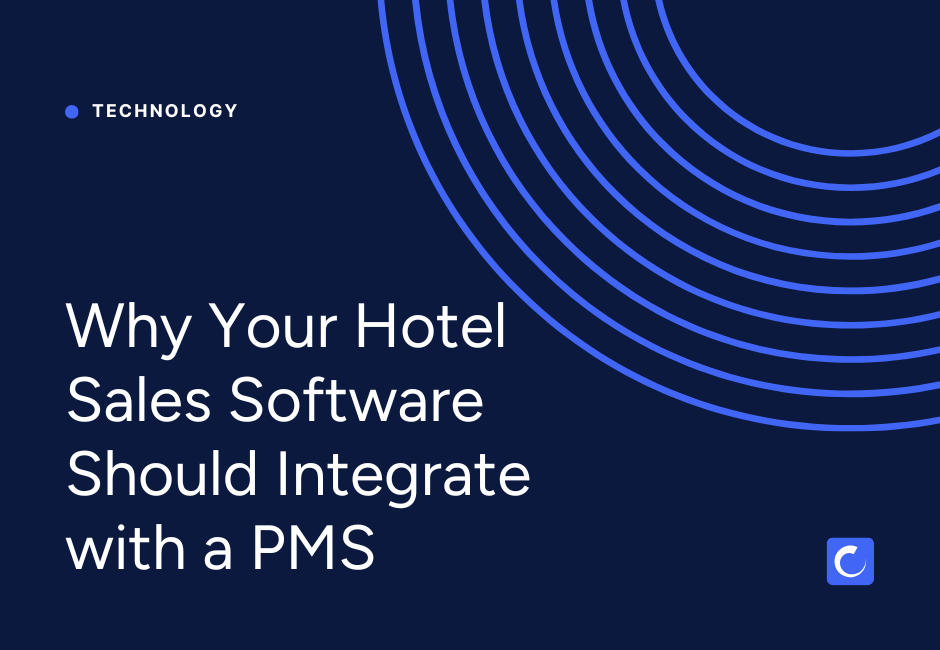.jpeg)
When it comes to venue management, we noticed that people had a lot of questions – from understanding the role of a venue manager to the finer details of venue operations. So, we took a deep dive into the most frequently asked questions and came up with clear, actionable answers that cut through the noise. Whether you're new to the field or looking to fine-tune your skills, this article is here to provide you with the insights you need.
What Is Venue Management?
Venue management is all about ensuring a space – whether a hotel, theater, conference center, or any event location – runs smoothly before, during, and after events. It’s not just about managing the physical space but also coordinating staff, logistics, and ensuring a stellar guest experience. Think of it like being the director of a movie; everything needs to be in place for the final show to run without a hitch.
Why Does Venue Management Matter?
A well-managed venue can make or break an event. Imagine an event where the lighting goes out mid-way or the food runs late – chaos, right? Effective venue management ensures that these potential issues are identified early and resolved quickly, ensuring the event runs without disruption.
What Is Venue Operations Management?
Venue operations management zeroes in on the nitty-gritty details of running a venue day-to-day. From preparing the space before an event to managing security, lighting, heating, and guest services during the event, operations management is the backbone that keeps everything functioning smoothly.
Checklist: Key Components of Venue Operations Management
- Logistics: Ensuring everything from sound equipment to chairs are set up as per the event requirements.
- Safety & Security: Ensuring all safety protocols are in place, and there's adequate security for the event.
- Maintenance: Keeping the venue in top condition before, during, and after the event.
- Staff Coordination: Ensuring that the right personnel are available at the right time (from cleaning staff to tech support).
What Does a Venue Duty Manager Do?
A venue duty manager is like the captain of the ship during an event. They’re responsible for overseeing the event’s progress, solving on-the-spot problems, and ensuring all client and guest needs are met. Think of them as the “fixer” — they make things happen.
Real-Life Example:
Imagine you're hosting a wedding, and suddenly, the AC breaks down in the middle of the reception. A venue duty manager quickly gets a technician on-site, reassures the guests, and works behind the scenes to keep things moving smoothly.
What Is the Role of Venues in Events?
Venues aren't just spaces – they play a critical role in shaping the overall experience of an event. From setting the mood (is it a grand ballroom or a cozy garden?) to facilitating logistics like parking and accessibility, the venue is often one of the first decisions made in the event planning process.
Important Considerations When Choosing a Venue:
- Capacity: Will it accommodate the number of guests?
- Location: Is it easy for attendees to get there?
- Amenities: Does it have everything you need, from AV equipment to catering facilities?
What Is the Job of a Venue Administrator?
A venue administrator handles the behind-the-scenes magic. Their job is to make sure all administrative tasks are taken care of, like bookings, payments, contracts, and ensuring the event’s timeline runs smoothly. They’re the organized brains that keep everything running like clockwork.
What Does Event Management Do?
Event management is like the grand puppeteer pulling all the strings – from finding a venue to setting up vendors and making sure every detail aligns with the client’s vision. It covers budgeting, designing the event’s flow, and managing staff. It’s a 360-degree role that turns ideas into reality.
Event Management in Action:
Think of a corporate conference: an event manager oversees everything, from arranging breakout rooms to organizing meals and entertainment for the night. Without a good event manager, even the best venue can fall flat.
Why Do Venues Need a Coordinator?
A venue coordinator ensures that what the client wants and what the venue offers line up perfectly. They help execute the event’s vision, liaising between the venue and the client to ensure all details, like seating arrangements and AV setups, are just right. Coordinators ensure that no detail, big or small, slips through the cracks.
What Is Venue Analysis?
Venue analysis involves a deep dive into the venue's suitability for an event. It’s about evaluating how well the venue meets your event's requirements — everything from guest capacity to technical capabilities like sound and lighting systems.
Venue Analysis Pro Tip:
When conducting a venue analysis, always check for hidden costs (like service fees) and ensure the venue has enough power outlets for things like AV equipment. You don’t want to find out last minute that the space isn’t wired to handle your tech-heavy event!
What Is the Venue-Based Approach?
The venue-based approach tailors the event experience to fit the specific features of the venue. Instead of forcing a standard layout or plan, this approach maximizes the venue’s natural features — whether it's a historic building’s architecture or the natural landscape of an outdoor venue.
Example:
Imagine hosting a concert at an old cathedral. Instead of adding modern elements that might distract from the space's beauty, you could enhance the natural acoustics and lighting to complement the venue’s historical charm.
Latest Trends in Venue Management
Staying ahead of the curve is key to keeping your venue in demand. Some current trends include:
- Hybrid Events: Combining live events with virtual elements to cater to a broader audience.
- Sustainability: More venues are going green, focusing on reducing waste and using renewable energy sources.
- Customizable Spaces: Venues that offer flexible layouts are in high demand, allowing clients to tailor the space to their event needs.
Top 5 Tips for Effective Venue Management
- Communication Is Key: Stay in constant communication with your staff, clients, and vendors to avoid any misunderstandings.
- Have a Backup Plan: Always prepare for the unexpected – whether it's weather issues for outdoor events or technical difficulties.
- Delegate Effectively: You can’t do everything yourself. Trust your team and delegate tasks to ensure smooth operations.
- Know Your Venue Inside Out: Familiarize yourself with the venue’s layout, exits, and emergency protocols. This knowledge is essential in case something goes wrong.
- Customer Experience: Always prioritize the guest experience. From the moment they arrive to the moment they leave, make sure everything is smooth and enjoyable.
Frequently Asked Questions (FAQ)
How do I choose the right venue for my event? Consider factors like size, location, budget, and the specific needs of your event. Make sure the venue matches the tone and scale of your event.
What challenges do venue managers face? Common challenges include last-minute changes, technical difficulties, weather issues for outdoor venues, and managing large crowds.
How much does a venue manager earn? Venue manager salaries vary depending on the size and type of venue, but on average, they can expect to earn between $50,000 to $80,000 annually.
Conclusion: The Art of Venue Management
Venue management is an art — it’s about balancing creativity with logistics to ensure events run smoothly. Whether you’re managing a concert hall or a conference center, understanding the nuances of your venue and staying organized is key to success. With the right approach, a well-managed venue can elevate any event from ordinary to extraordinary.



